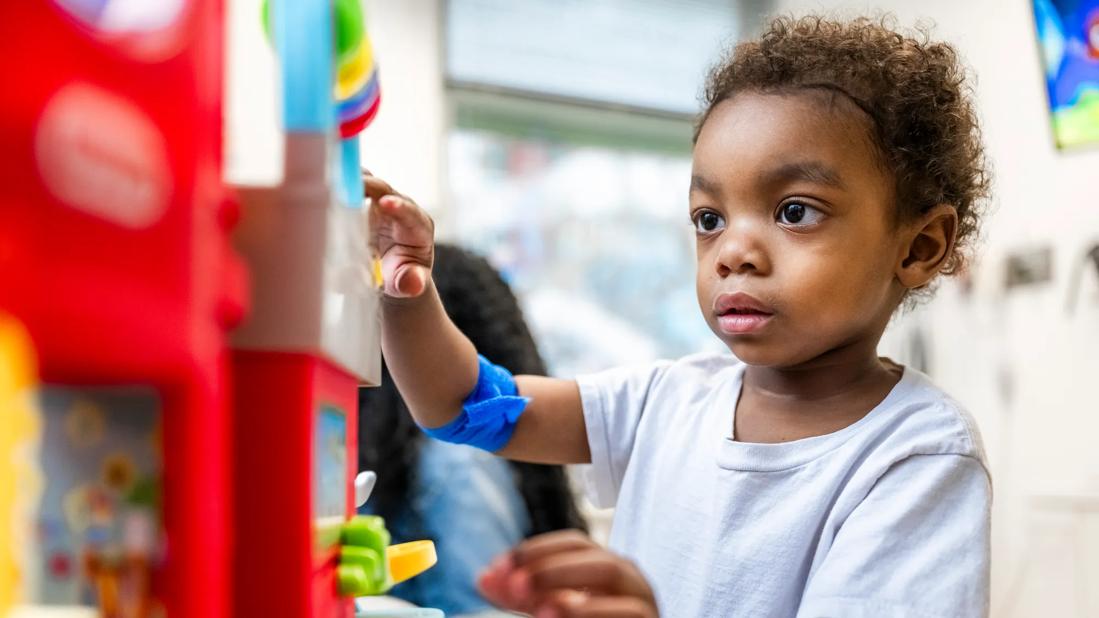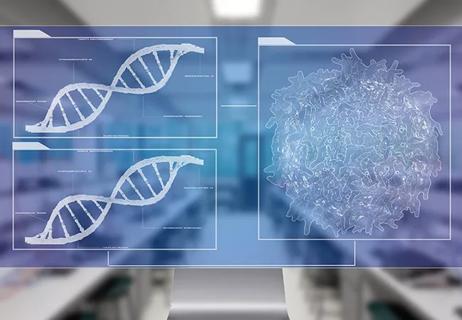Cleveland Clinic Children’s Center for Autism offers comprehensive consultation services

Autism spectrum disorder (ASD) affects about 1 in every 44 children, according to the Centers for Disease Control and Prevention. The CDC states that while ASD diagnoses have increased over time, likely owing to expanded diagnostic criteria, improved screening, and other possible variables, the direct cause is still unknown.
Advertisement
Cleveland Clinic is a non-profit academic medical center. Advertising on our site helps support our mission. We do not endorse non-Cleveland Clinic products or services. Policy
Cleveland Clinic’s Children’s Center for Autism has been providing comprehensive services to children with autism in the Northeast Ohio for over 20 years. More than a decade ago, the center launched a national/international consultative division, Cleveland Clinic Children’s Autism Development Solutions (CCCADS), to offer clinical and programmatic support and guidance to public and private healthcare and education organizations.
Travis Haycook, MEd, previous assistant director of Cleveland Clinic Children’s Center for Autism, began leading the CCCADS division in 2013.
The program began through circumstance. A young child diagnosed with autism and his family relocated to Northeast Ohio from another state to receive care and support from Cleveland Clinic Children’s Center for Autism. When the child turned 5 and could start public school, the family returned to their home state and reached out to their local hospital system for continued care. The hospital, however, did not have adequate autism services at the time. As a result, hospital staff eventually connected with Cleveland Clinic Children’s for guidance on developing services.
Soon after, word-of-mouth referrals generated requests from other organizations across the country. At that point, Haycook says, he and the team continued their day jobs at the Center for Autism while developing a training plan and resources to assist these other organizations in the evenings. Eventually, the center formalized operations of the consultative arm of the program.
Advertisement
To date, they’ve worked with 26 healthcare or educational programs in 14 states. Three programs have progressed to become licensed, co-branded affiliates of Cleveland Clinic Children’s Center for Autism, a designation that requires more intensive training and regulation. The CCCADS team offers a full-service suite of onsite, virtual, and immersive consultative support services.
“Each organization has different needs, so the process is different each time,” explains Haycook.
Some organizations want to build a program from the ground up, while others want to optimize or improve their existing offerings. “Some organizations come to us and say, ‘We have a patient base of children with autism who need services, and we want to adopt your model of intervention and provide them the best quality of care.’ Others might say, ‘We have never offered autism services before or managed an autism program and are seeking the guidance and support from Cleveland Clinic Children’s.’”
Because of this variation, contracts, plans and timelines all differ. Although Haycook says, a program might generally expect to see their first patient about six months from the initial collaboration.
Becoming a licensed affiliate takes longer; it’s a two- to three-year process whereby the organization begins as a consulting client. Then, once they are established effectively, they are evaluated for the possibility of becoming a branded affiliate. “We’ve done that in as little as two years, but it usually takes a little longer than that.”
Advertisement
In addition to a traditional didactic format, there is also an opportunity for more immersive training by working alongside Cleveland Clinic Children’s staff and patients at the Center for Autism location in Cleveland.
Even after the formal implementation phase, new centers become part of a connected autism network, which Haycook describes as a “national think tank.”
“We regularly connect, and network members share experiences and present difficult cases to the team to get additional ideas and support from a large array of professionals who each bring their own personal experiences and perspectives to the table. This includes board-certified behavior analysts, speech-language pathologists, special education teachers, medical professionals and psychologists.”
Haycook says this forum and CCCADS-supported programs in general provide much needed care, often in areas where few resources exist to manage ASD. “We’re dealing with an incredibly complex developmental disorder, and a lot of times these programs are able to help children with ASD in ways that nobody else can.”
Advertisement
Advertisement

Center for Autism to provide social, educational and skills-based program for families

Education for medical caregivers and families is part of the package

Cleveland Clinic researchers receive $2 million grant from the National Institutes of Health

Realistic scenarios stress importance of soft skills

Findings hold lessons for future pandemics

One pediatric urologist’s quest to improve the status quo

Overcoming barriers to implementing clinical trials

Interim results of RUBY study also indicate improved physical function and quality of life